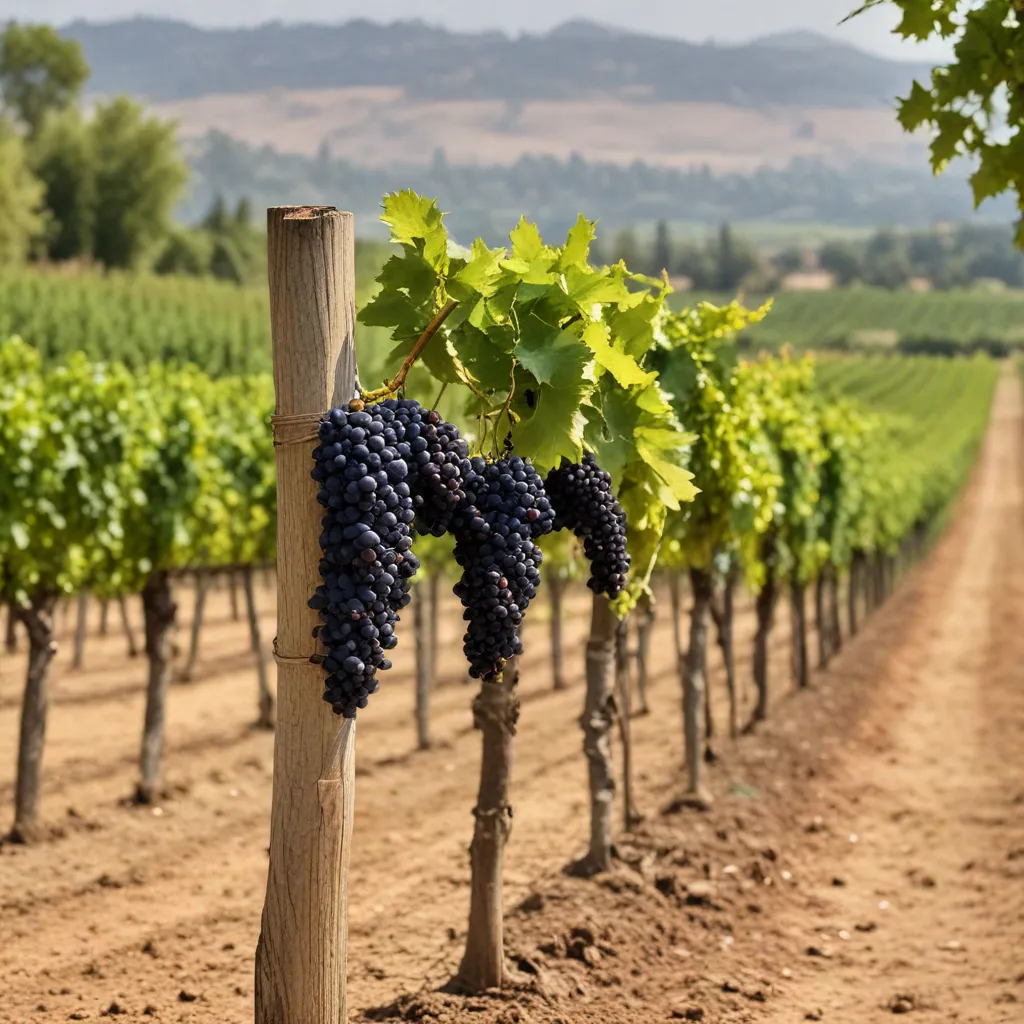
As the world becomes increasingly conscious of environmental preservation, the wine industry is at the forefront of this movement, embracing sustainable practices to reduce its ecological impact. At the Wine Garden Inn, we are committed to showcasing the winemakers who are leading the charge in sustainable viticulture and winery operations. In this comprehensive exploration, we delve into the eco-conscious initiatives that make wineries like Wiens Cellars, Halter Ranch, and J. Lohr beacons of environmental responsibility and social awareness in the world of wine.
Environmentally-Friendly Viticulture
Sustainable winemaking begins in the vineyard, where winemakers are implementing a range of eco-conscious techniques to minimize their environmental impact and promote long-term soil and grapevine health. These practices often involve organic farming methods, biodynamic cultivation, and precision-based irrigation strategies.
Organic Grape Farming
Organic farming practices are at the heart of many sustainable vineyards. By eliminating the use of synthetic pesticides, herbicides, and fertilizers, these wineries are able to nurture the delicate balance of their ecosystems, supporting beneficial insects and microorganisms that play a vital role in the health of the vines. Wiens Cellars, for example, has embraced organic farming methods across its entire 53-acre estate, ensuring that their grapes are grown in a manner that respects the land and its natural rhythms.
Biodynamic Cultivation
Taking sustainable viticulture a step further, some wineries have adopted biodynamic farming practices, which view the vineyard as a self-sustaining, interconnected ecosystem. Biodynamic growers eschew the use of any synthetic inputs, instead relying on a holistic approach that incorporates preparations made from natural materials, such as cow manure, to enhance soil fertility and vine health. Halter Ranch, a 256-acre certified organic estate, has embraced biodynamic principles, recognizing the importance of working in harmony with the natural world.
Precision Irrigation
Water conservation is a critical component of sustainable winemaking, and many wineries are implementing precision-based irrigation strategies to ensure that their vines receive just the right amount of hydration. J. Lohr Vineyards, for example, utilizes advanced technologies like pressure bombs and surface renewal to closely monitor the water status of their vines and soil, allowing them to fine-tune their irrigation practices and minimize water waste.
Eco-Friendly Winery Operations
The commitment to sustainability extends beyond the vineyards, as wineries are also implementing a range of eco-conscious initiatives within their production facilities to reduce their environmental impact.
Renewable Energy Sources
Renewable energy is a cornerstone of sustainable winemaking, and many wineries are investing in solar power to offset their energy consumption. Halter Ranch, for instance, has installed solar panels that provide more than half of the energy needed to power its operations, while J. Lohr has solar tracking systems that supply over 84% of its electrical needs at its Paso Robles facility.
Waste Reduction Initiatives
Wineries are also taking steps to minimize waste and promote recycling throughout their operations. Wiens Cellars, for example, has implemented comprehensive recycling programs for materials like bottles, cans, and cardboard, while also exploring the use of more environmentally-friendly inks and packaging processes to reduce volatile organic compound (VOC) emissions.
Water Conservation Strategies
Given the significant water usage in winemaking, many wineries are implementing innovative strategies to conserve this precious resource. J. Lohr, for instance, has developed a comprehensive water conservation program that ties water usage to land management, utilizing techniques like deficit irrigation and wastewater recycling to optimize water efficiency.
Sustainable Packaging Solutions
Sustainable winemaking extends beyond the vineyard and winery, as wineries are also exploring eco-friendly packaging solutions to reduce the environmental impact of their products.
Sustainable Bottle Designs
Wineries are exploring innovative bottle designs that prioritize sustainability, such as lighter-weight glass or alternative materials like recycled plastic or aluminum. Wiens Cellars, for example, offers refillable and reusable wine bags, allowing consumers to minimize their packaging waste.
Recyclable Label Materials
In addition to the bottles themselves, wineries are also paying close attention to the materials used for their labels, opting for more environmentally-friendly options like recycled paper or compostable materials.
Eco-Friendly Shipping
Sustainable winemaking also encompasses the transportation and distribution of the final product. Wineries are exploring ways to reduce the carbon footprint of their shipping practices, such as using recycled or biodegradable packaging materials and optimizing logistics to minimize unnecessary travel.
Biodiversity Conservation Efforts
Sustainable winemaking is not just about reducing the industry’s environmental impact; it’s also about actively preserving and enhancing the natural habitats that surround vineyards. Many wineries are implementing initiatives to protect and promote biodiversity on their properties.
Habitat Protection
Wineries like Halter Ranch are dedicating a significant portion of their land to natural habitats, ensuring that wildlife corridors and oak woodlands remain undisturbed. By setting aside these protected areas, they are able to support a diverse array of flora and fauna, contributing to the overall health and resilience of the local ecosystem.
Wildlife-Friendly Practices
In addition to habitat preservation, wineries are also implementing practices that actively support the well-being of local wildlife. J. Lohr, for instance, has installed owl boxes on its satellite ranches to help mitigate pest problems, while also maintaining a substantial number of oak trees that provide natural habitats for birds of prey.
Ecosystem Preservation
Sustainable winemaking is not just about reducing the industry’s environmental impact; it’s also about actively preserving and enhancing the natural habitats that surround vineyards. Many wineries are implementing initiatives to protect and promote biodiversity on their properties, ensuring that the delicate balance of their local ecosystems remains intact.
As we raise our glasses to toast the wines of sustainable wineries like Wiens Cellars, Halter Ranch, and J. Lohr, we are not only savoring exceptional wines but also supporting the environmental stewardship, economic feasibility, and social equity that are the hallmarks of true sustainability. By choosing these eco-conscious wines, we are contributing to a more sustainable and harmonious future, one bottle at a time.
